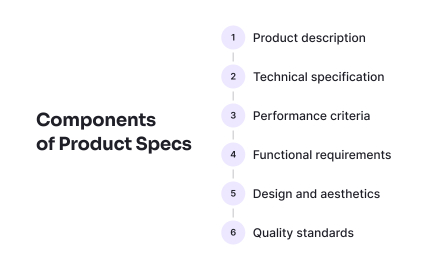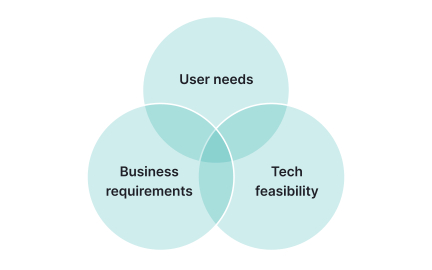Technical Product Manager
A technical product manager connects product goals with engineering decisions, guiding feature planning, specs, and platform requirements.
What is Technical Product Manager?
Your product development suffers from poor coordination between business requirements and technical implementation because product managers lack deep technical understanding, leading to unrealistic timelines, scope creep, and products that don't leverage technology capabilities effectively.
Most product managers focus on user needs and business objectives without sufficient technical depth to make informed trade-offs between functionality and implementation complexity, missing opportunities to optimize product development through technical expertise and engineering collaboration.
A Technical Product Manager is a product management professional with deep technical expertise who bridges business strategy and engineering execution by making informed technical trade-offs, optimizing development processes, and ensuring products leverage technology capabilities effectively for competitive advantage.
Teams with effective Technical Product Managers achieve 40% faster development cycles, 50% fewer technical debt issues, and significantly better architecture decisions because product strategy incorporates technical feasibility and optimization opportunities throughout development planning.
Think about how companies like Google use Technical Product Managers to coordinate complex infrastructure products that require deep technical understanding, or how fintech companies need technical product expertise to navigate regulatory requirements and security challenges.
Why Technical Product Managers Matter for Development Success
Your product development lacks technical sophistication because product decisions are made without understanding implementation complexity and technical possibilities, leading to suboptimal architecture and missed opportunities for technical competitive advantages.
The cost of insufficient technical product management compounds through every development decision that could be optimized with technical expertise. You get technical debt accumulation, missed optimization opportunities, unrealistic scope planning, and competitive disadvantage when products don't leverage technology capabilities strategically.
What effective Technical Product Management delivers:
Better technical architecture and implementation decisions because Technical Product Managers understand engineering trade-offs and can guide product strategy that optimizes for both user value and technical excellence.
Enhanced engineering team collaboration and development efficiency through product managers who speak engineering language and understand development processes, enabling more effective coordination and realistic planning.
Improved product scalability and performance optimization because technical product expertise enables strategic decisions about infrastructure, architecture, and technology choices that serve long-term product success and competitive positioning.
Stronger competitive advantage through technical innovation as Technical Product Managers identify opportunities to leverage technology for competitive differentiation rather than just feature parity without technical optimization.
More accurate development estimation and resource planning through technical understanding that enables realistic timeline and scope planning based on actual implementation complexity rather than optimistic assumptions.
Advanced Technical Product Manager Capabilities
Platform Strategy and Technical Ecosystem Development: Design technical products as platforms that enable ecosystem expansion and third-party integration rather than just individual product optimization without strategic platform consideration.
Technical Debt Management and Architecture Evolution: Balance feature development with technical debt reduction and architecture improvement rather than just feature delivery without long-term technical health consideration.
Performance Optimization and Scalability Planning: Integrate performance and scalability considerations into product planning rather than just functional requirements without technical performance and growth consideration.
Security and Compliance Integration: Build security and regulatory compliance into product strategy rather than treating them as external constraints that limit product capabilities and competitive positioning.
Step 1: Develop Deep Technical Understanding and Engineering Credibility (Week 1-2)
Build comprehensive knowledge of your product's technology stack, development processes, and technical constraints rather than just business requirements without understanding implementation implications and optimization opportunities.
This creates technical product management foundation based on genuine technical expertise rather than superficial technical knowledge that might not enable effective engineering collaboration and informed decision-making.
Step 2: Master Technical Trade-Off Analysis and Decision-Making (Week 2-3)
Learn to evaluate technical alternatives systematically considering factors like performance, maintainability, scalability, and development time rather than just feature functionality without technical optimization consideration.
Focus technical decision-making on long-term product success rather than just immediate feature delivery, ensuring technical choices serve strategic objectives and competitive positioning requirements.
Step 3: Build Strong Engineering Relationships and Collaborative Processes (Week 3)
Establish effective working relationships with engineering teams through technical credibility and collaborative problem-solving rather than just requirements handoff without ongoing technical coordination and optimization.
Balance product vision with technical reality to ensure product strategy is both ambitious and achievable with available technical resources and organizational capabilities.
Step 4: Integrate Technical Strategy with Business Objectives (Week 3-4)
Connect technical architecture decisions to business outcomes and competitive strategy rather than just technical excellence without business impact consideration and strategic alignment.
Step 5: Lead Technical Innovation and Competitive Advantage Development (Week 4)
Identify opportunities to leverage technology for competitive differentiation and market positioning rather than just following technical best practices without strategic innovation and competitive advantage creation.
This ensures Technical Product Management generates business value rather than just technical optimization that doesn't improve competitive positioning and market success measurably.
If technical product management doesn't improve development outcomes, examine whether technical expertise serves strategic business objectives rather than just technical perfection without business impact consideration.
Recommended resources
Courses

Writing Effective Product Specs

Enhancing UX Workflow with AI

HTML Foundations
Lessons

What PMs Actually Do

Understanding Product Specifications





